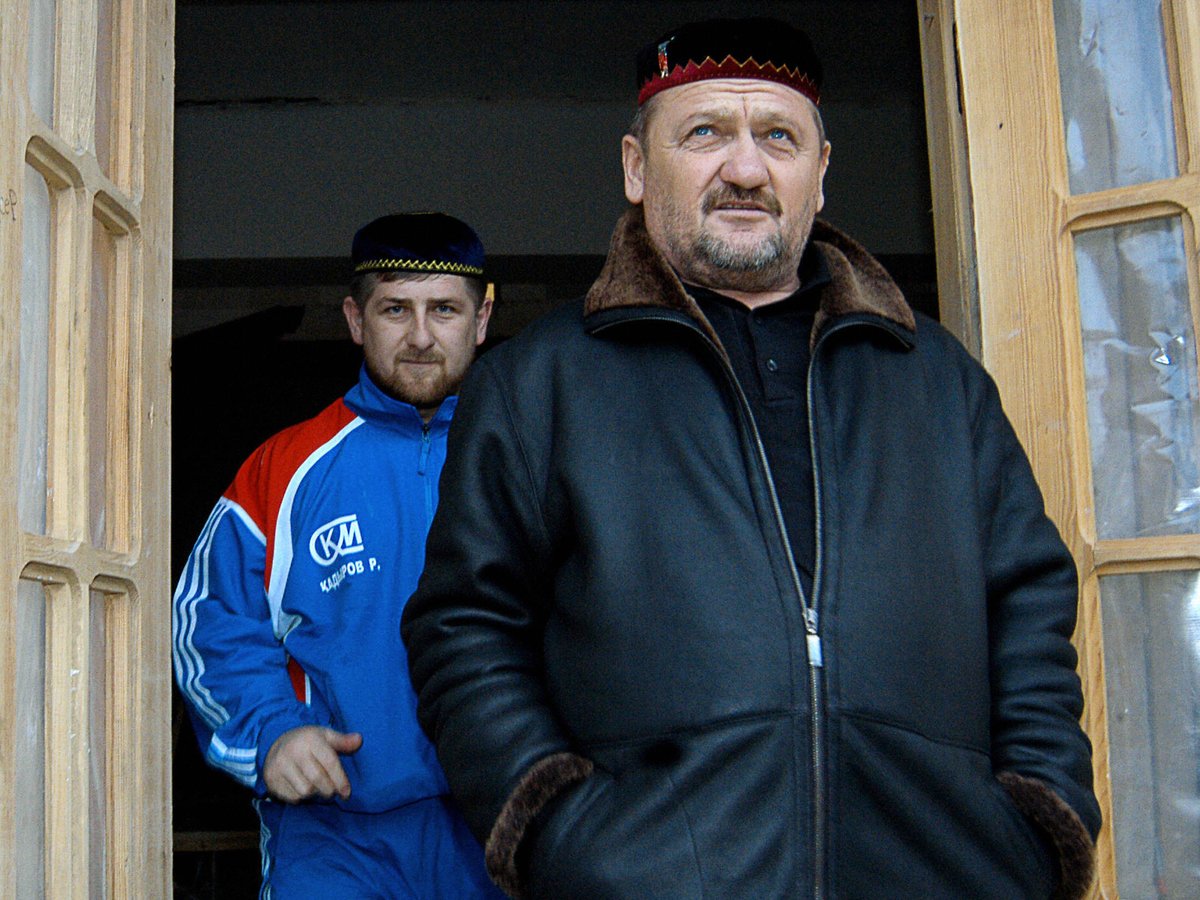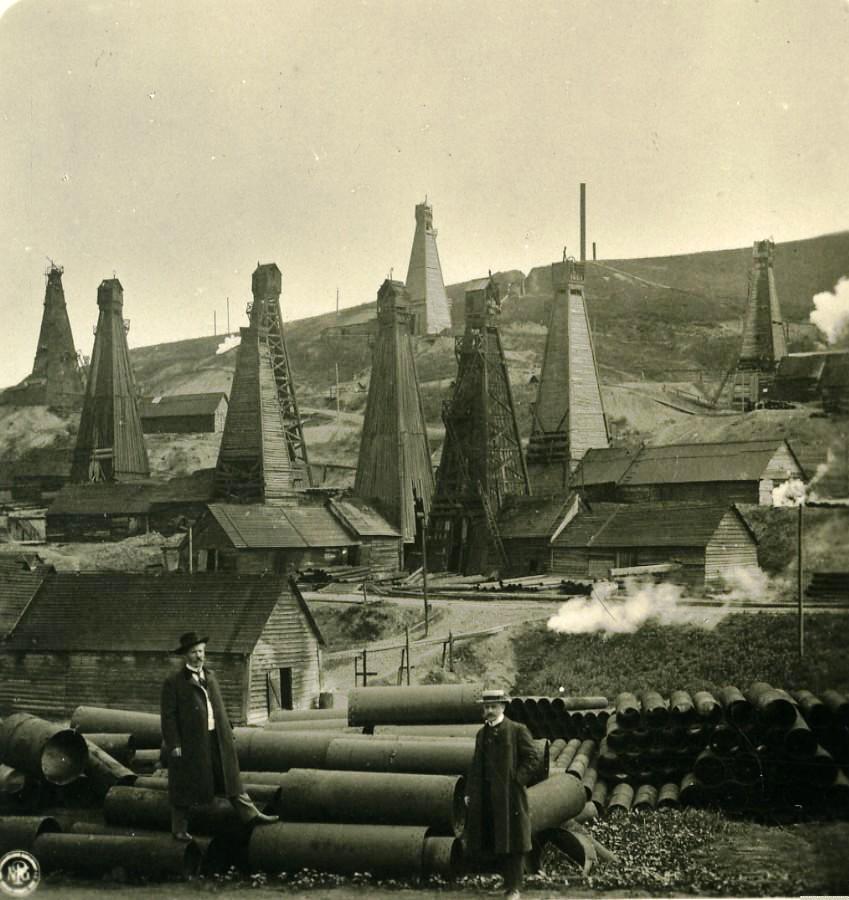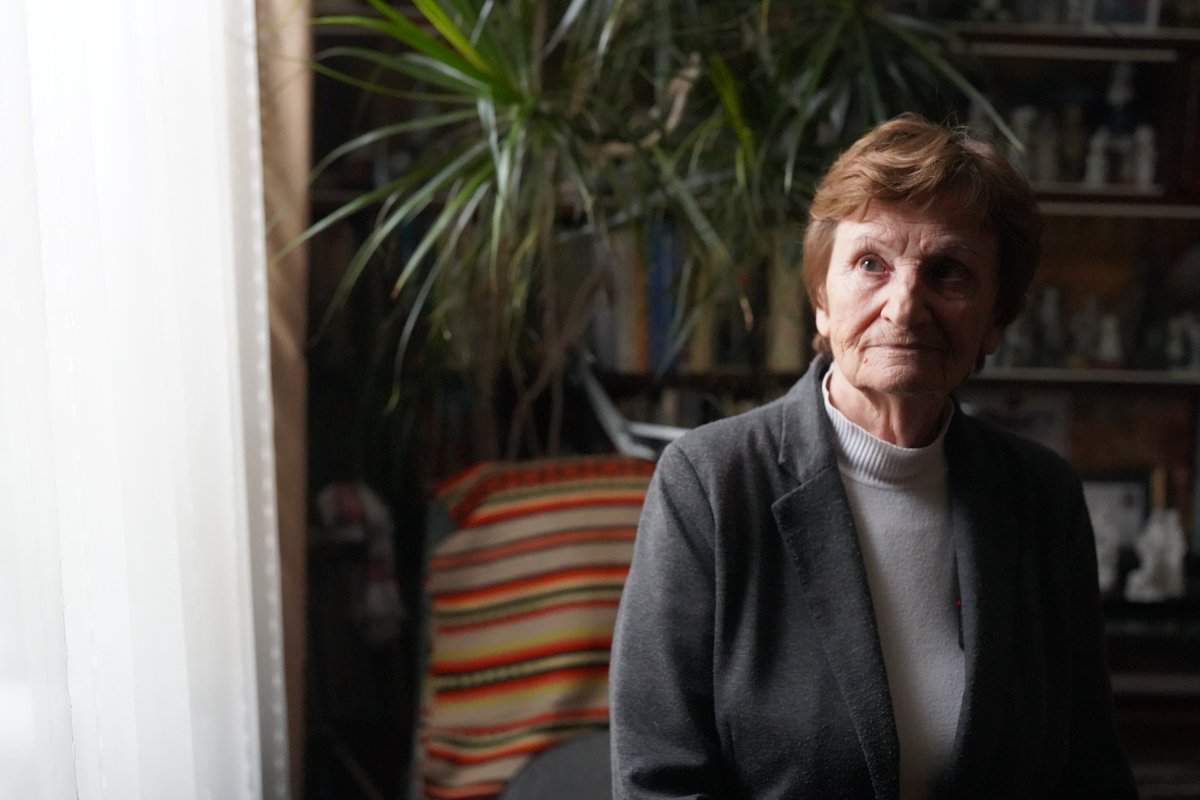HISTORY
Old history
The Chechens, a Nakh people, have resided in the North Caucasus for thousands of years. Closely linked to the Ingush, I recommend the Ingushetia thread for more details on earlier history. /1
Old history
The Chechens, a Nakh people, have resided in the North Caucasus for thousands of years. Closely linked to the Ingush, I recommend the Ingushetia thread for more details on earlier history. /1
https://twitter.com/1082338523309633537/status/1688532783482769408
Historically, the Chechens organized in kinships and Teips (tribal units), existing for centuries. The region has long been a strategic Eurasian connector. /2 

A pivotal figure in Caucasus history is Sheikh Mansur. He rallied various nations against Russian colonialism in the 18th century. He is considered a national hero among Chechens. /3 

The 19th century witnessed a major war, with Russia's conquest culminating in numerous Caucasus nations united against the aggressor. This war marked the final conquest of the North Caucasus. For detailed insights, see my linked thread on this 19th-century conquest. /4
https://twitter.com/1082338523309633537/status/1662832868530311176
The begin was 20th century was marked by resistance and efforts to establish an independent Caucasus republic. However, the state was eventually captured by Soviet Russian forces in 1921. /5 

Post-WW2, most North Caucasus nations, including Chechens, faced complete deportation until rehabilitation in 1956. The consequences of this eviction were catastrophic, leading to a quarter or one-third of the deported people dying. /6
Regions with populations wholly deported suffered economically, remaining impoverished and underdeveloped for extended periods. Returning home was also challenging, as Chechen houses were already occupied by Russians. /7 

Modern history
At the end of the eighties, there were many national movements aimed to support cultural development or independence movements in the USSR. Chechnya was not an exception. /8
At the end of the eighties, there were many national movements aimed to support cultural development or independence movements in the USSR. Chechnya was not an exception. /8
In 1991, the Congress of Chechen People aimed for independence, declaring it in autumn 1991 under Dudaev's leadership. /9 

My thread on the first Russo-Chechen war details the pre-1996 history. This thread skips the 1991-1996 period, focusing on subsequent events. /10
https://twitter.com/1082338523309633537/status/1709660053148454922
The outcome was that de facto, Ichkeria was recognized as an independent state, with the de jure status to be determined in 2001. /11
https://twitter.com/1082338523309633537/status/1704127706571677865
Post-war Chechnya (1996) was devastated: hundreds of thousands of refugees, casualties, and severe injuries. /12
In 1997, Maskhadov, a noted Chechen commander, was elected president. The situation in Ichkeria was very hard, since absolute devastation led to rampant lawlessness and economic strife. /13 

Despite the formal peace, sporadic clashes occurred along the Russian-Chechen border during 1996-1999. /14
In 1999, a brief conflict in Dagestan involved Chechens without the support of the Ichkerian government. More on this in the Dagestan thread. /15
https://twitter.com/1082338523309633537/status/1662833689091268608
Allegations surfaced in late 1999, accusing Chechen forces of residential bombings. Independent researchers suggest these could have been orchestrated by the FSB, possibly under Putin, to reignite the Chechen conflict. /16 

The ground invasion began in October 1999, preceded by air strikes. The onset of the war was marked by intense brutality and numerous war crimes. /17








By March 2000, Russian forces had established control, though Ichkerian fighters, including President Maskhadov, continued guerrilla warfare. Maskhadov was killed as far as in 2005. /18 

After the first war, a shift towards a more conservative form of Islam was observed among Chechens. Ichkeria began transitioning to Sharia law, leading to radicalization among many fighters due to the circumstances. /19
This period saw persistent Ichkerian resistance efforts in guerrilla warfare and high-profile terror acts, including Nord Ost and Beslan, led to civilian casualties due to Russian forces' interventions. /20




In 2004, Ichkerians assassinated Akhmad Kadyrov. Since then, Ramzan Kadyrov has governed Chechnya for Russia, officially becoming head of the republic in 2007. /21 

Despite Russian military claims, the counter-terrorism regime was only lifted in 2009, with FSB strictly controlling regional access until then. Guerrilla warfare persisted, with the latest notable clash occurring in 2021. /22
Kadyrov's tenure has seen authoritarian rule, with reports of human rights abuses. Activists opposing his regime have faced torture and murder. Kadyrov has authorization to act in this manner from Moscow, provided he remains loyal to the Kremlin. /23 

In a notable instance, Kadyrov expanded Chechnya's borders at Ingushetia's expense in 2018, sparking significant protests in Ingushetia. Despite the public outcry, these actions remained unchallenged, underscoring the extent of his power. /24




Efforts to rebuild Chechnya were made, though benefits were largely limited to Kadyrov and his affiliates. Further discussion on the economy will follow in upcoming chapter. In general, Chechnya is one of the poorest regions in Russia. /25
Attempts to improve Russia's international image involved bringing to Grozny prominent figures, often obviously Russian assets. /26








GEOGRAPHY
Chechnya is located in the eastern part of the North Caucasus. Known for its mountainous terrain, the region is divided between the flatter areas north of the Terek River and the highlands south of it. /27


Chechnya is located in the eastern part of the North Caucasus. Known for its mountainous terrain, the region is divided between the flatter areas north of the Terek River and the highlands south of it. /27


Chechnya maintains a rail connection with nearby regions. It borders mainly other Russian territories, but also shares a border with Georgia. However, a mountain range with elevations often between 3,000 and 4,000 meters prevents direct connections. /28 

An intriguing aspect involves the Georgian border, particularly the Argun Valley, which stretches for hundreds of kilometers. This valley has historically served as a passage through the mountains. /29




However, the Russian Empire did not construct a significant road in this area, relying on the nearby Darial Pass (Ingushetia) for access to the central Caucasus. /30
https://twitter.com/1082338523309633537/status/1688532796136992769
In the 1990s, recognizing the importance of external connections, the Ichkerians, led by President Mashadov in 1997, sought improved relations with Georgia, culminating in an agreement to build a road. /31
By 1999, after two years of construction, the Grozny-Tbilisi road was completed, shortening the journey from 450 km to 200 km. This road was utilized for a year but fell into disuse during the war and remains unused. /32 

In 2017, Kadyrov acknowledged the potential benefits of such a road and proposed adding railway connections. Despite this, no progress has been made, and the area remains under strict control, requiring FSB permission for access. /33 

ECONOMY
Chechnya has garnered significant attention since the 1990s. Efforts to enhance its image include initiatives like Kadyrov inaugurating new mosques and infrastructure projects, such as a ski resort. /34


Chechnya has garnered significant attention since the 1990s. Efforts to enhance its image include initiatives like Kadyrov inaugurating new mosques and infrastructure projects, such as a ski resort. /34


However, data indicate that the economic situation remains challenging, with the region consistently ranking low in GDP per capita and grappling with one of Russia's highest unemployment rates. /35






Historically, Chechnya was known for its oil production, peaking in the 1970s with 21 million tons annually. Recent years have seen a significant decrease, with production around 100,000 tons of oil. /36




This decline can be attributed to two main factors: extensive damage to infrastructure, including oil refineries, during the 2 wars, with only partial reconstruction achieved, and the depletion of some oil fields due to intensive extraction since the late 19th century. /37
It is also crucial to recognize that approximately every 50 years, the region experiences devastating conflict or genocide, severely impacting its development. Each time it begins to recover, another catastrophe occurs, usually driven by policies from Moscow/St. Petersburg. /38 

POPULATION
Following the deportation of the entire Chechen nation, Russians constituted the majority of the population until the 1960s. This demographic began to shift rapidly, and by 2021, Chechens made up 96% of the population. /39
Following the deportation of the entire Chechen nation, Russians constituted the majority of the population until the 1960s. This demographic began to shift rapidly, and by 2021, Chechens made up 96% of the population. /39

Similar to other Muslim-majority regions, the population continues to grow steadily.
The majority of the population resides in the central part of the region. /40
The majority of the population resides in the central part of the region. /40

Chechen is widely spoken, also by Moscow's appointees. Interestingly, the content of their messages in Chechen tends to be more severe. Kadyrov often uses it for harsher messages, especially calling for violence. /41




FREEDOM MOVEMENTS
Following the demise of Aslan Maskhadov in 2005, the Ichkerian leadership was plunged into discord. Doku Umarov, favoring radical actions, clashed with Akhmed Zakayev, who had moderate views and was residing in exile since 2002. /42
Following the demise of Aslan Maskhadov in 2005, the Ichkerian leadership was plunged into discord. Doku Umarov, favoring radical actions, clashed with Akhmed Zakayev, who had moderate views and was residing in exile since 2002. /42

Umarov dissolved his presidency to form the Caucasus Emirate, a jihadist group engaging in guerrilla warfare. Its success was hampered by international designation as a terrorist organization and scant regional support for radical Islam. /43 

The 2000s saw numerous terror attacks and skirmishes with Russian forces, weakened further by another internal strife. Despite this, resistance persisted, including a 2021 FSB assault on a unit led by Byutukaev. /44
Zakayev, from his UK base, defied Russia's extradition attempts. As Ichkeria's ex-culture minister and brigadier general, he promoted diplomacy, notably during the Beslan crisis. /45
Despite Russia's claims, attempts to extradite Zakayev for alleged terrorism failed. Russia assasinated Chechens abroad. Most notable cases were Yandarbiyev(killed in Qatar in 2004) and Khangoshvili (killed in Germany 2019). /46




Putin's recent proposal to swap Khangoshvili's assassin (Russian FSB agent) for detained U.S. journalist Gershkovich underscores the fascist nature of Russia. /47 

Post-Chechnya war, some Ichkerian fighters joined Ukrainian forces, especially after February 24, 2022. Their involvement highlights a continued fight against Russian influence, aligning with broader resistance movements. /48




Ukraine's recognition of Ichkeria in 2022 and the opening of an official representation in 2023 mark significant support for Ichkerian aspirations. Zakayev's role in Kyiv, organizing Chechen units, underlines a strategic partnership against Russian advances. /49
Zakayev's efforts to raise Ichkerian issues globally include leveraging digital platforms. YouTube channels, along with the Ichkerian news outlet and official site @ChechenGov, play importamt role in amplifying their message for autonomy and recognition. /50




@ChechenGov CONCLUSION
Without a doubt, the prospects for achieving independence in Ichkeria are significantly higher than in any other region we have covered. It benefits from not being completely isolated, possesses a government-in-exile, and enjoys a degree of international support. /51
Without a doubt, the prospects for achieving independence in Ichkeria are significantly higher than in any other region we have covered. It benefits from not being completely isolated, possesses a government-in-exile, and enjoys a degree of international support. /51

@ChechenGov Despite these positive signs, it's crucial to acknowledge that Russia maintains a vigilant watch over the region. Thousands of FSB agents are still active within occupied Ichkeria. /52 

@ChechenGov Extensive resources are devoted to ensuring it remains within the Russian Federation, facilitating a lavish lifestyle for Kadyrov akin to that of a sultan. /53 

@ChechenGov Support for independence was nearly unanimous in the 90s, a sentiment many should still remember. However, the unarmed populace will face significant challenges in a state controlled by the oppressive FSB. /54
@ChechenGov Nevertheless, there is a way we can collectively support the Ichkerian units currently fighting Russian occupiers: by helping to arm them. ⬇️⬇️⬇️ /55
@ChechenGov MAX RETWEET PLEASE
In agreement with @konoplintusss, I am sharing a fundraiser for a Dudayev Battalion. Goal: 600$ to get starlink.
Paypal: ivova3665@gmail.com /56
In agreement with @konoplintusss, I am sharing a fundraiser for a Dudayev Battalion. Goal: 600$ to get starlink.
Paypal: ivova3665@gmail.com /56

• • •
Missing some Tweet in this thread? You can try to
force a refresh






















